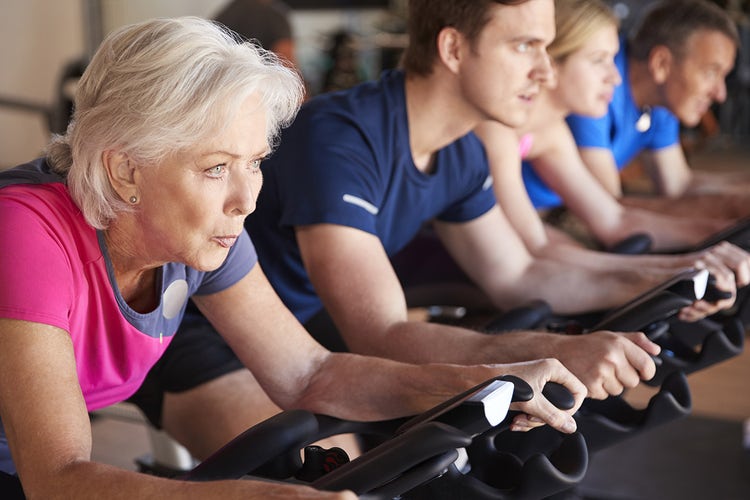Dr. Sara Gottfried’s Tips for a Healthy Brain and Healthy Body

Dr. Sara Gottfried knows how hormonal imbalances can wreak havoc on your health. The 52-year-old Berkeley, California-based board-certified gynecologist remembers waking up one morning more than 15 years ago feeling physically and mentally depleted.
At the time, Gottfried was seeing up to 30 patients a day. She had put on weight and bemoaned the fact that no matter how hard she tried, she couldn’t seem to lose the extra pounds. A visit to her own doctor proved frustrating when he recommended Gottfried eat less, exercise more and consider taking antidepressants.
“My problem wasn’t depression,” she says. “I was stressed and felt the root cause might be hormonal.”
She was right. A series of blood tests showed Gottfried’s cortisol, estrogen and thyroid levels were out of whack. As a result, she started paying attention to her hormone levels and taking steps to regulate them naturally. Within several months, Gottfried began feeling more energetic and sleeping better, and she reclaimed her life.
A three-time New York Times best-selling author of “The Hormone Cure” (Scribner, 2014), “The Hormone Reset Diet” (HarperOne, 2016) and “Younger” (HarperOne, 2016), Gottfried now works to help others balance their hormones. She teaches natural hormone balancing in her novel online programs (saragottfriedmd.com) so that women can lose weight, detoxify and slow down aging. Her latest book, “Brain Body Diet” (HarperOne, 2019), offers a detailed plan addressing the symptoms of an imbalanced brain and body, and she also gives tips on how to achieve a calm, energized and happier version of yourself in 40 days.
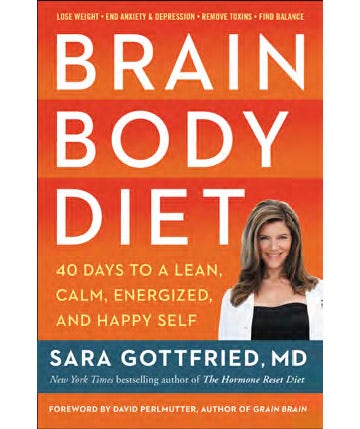
Unlock the secrets of hormone health
So what’s the big deal about hormones, and how do they affect your body? According to Gottfried, hormones impact everything from weight gain to mood to sleep and chronic disease.
“Unchecked, your hormones can work against you in serious ways and contribute to two times the risk of anxiety, depression, insomnia and Alzheimer’s disease in women,” Gottfried says. “Imbalanced hormones are at the root of weight-loss resistance, rising body-weight set point and low sex drive. In my opinion, when you get these hormones back on track, you can reduce your risk of conditions from the banal to the serious.”
Gottfried says signs of a hormone imbalance can include weak nails, hair loss, night sweats, a puffy face, migraines, forgetfulness, fatigue, low sex drive and weight gain.
“Estrogen is the master regulator hormone for women and can start to get out of whack around age 35 to 40,” Gottfried says. “About 85 percent of women over 35 have issues with estrogen, also wreaking havoc on hormones like thyroid and insulin. These are the main drivers for weight gain, accelerated aging and brain-body dismay.”
Yet hormones don’t just concern women. Gottfried says they affect men, too.
“Men also need to regulate cortisol, insulin and blood sugar, keep tabs on testosterone and estrogen levels, and maintain healthy levels of vitamin D,” she says. “However, because of the possible link between estrogen and Alzheimer’s disease and dementia, it’s more crucial for women to stay attuned to their sugar, alcohol and stress intake.”
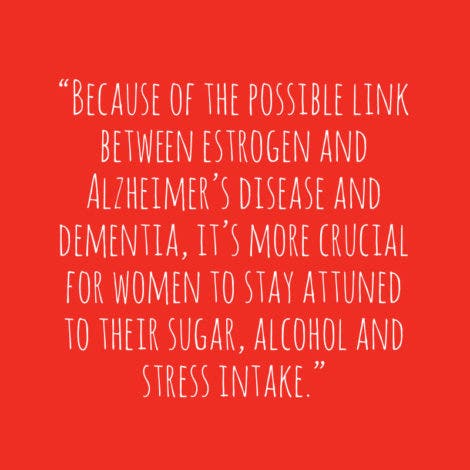
Regain hormonal balance
Growth hormone plays a role in healthy muscle, promoting heart performance, reducing body fat, and increasing muscle mass and strength. Gottfried says studies show impaired GH levels can increase fat, break down muscle, decrease energy and generally make your life miserable. While injections exist to optimize GH levels, Gottfried says it’s also possible to naturally increase your levels without incurring the risks and side effects of injections. Consider the following tips:
Tip: Hack your sleep.
“Sleep is incredibly important, and poor sleep quality is an epidemic that so many people simply take for granted as part of a busy lifestyle,” Gottfried says. “Studies show a link between weight gain, lack of sleep and insulin resistance. Furthermore, sleep debt leads to dietary indiscretion and weight gain in women because they’re too tired to make wise food choices.”
Gottfried says studies show the sweet spot is getting between seven and a half to eight hours of restorative sleep each night.
“Master your sleep and you’ll find it easier to balance your hormones, muster the willpower to make good choices and, ultimately, lengthen your health span,” she says.
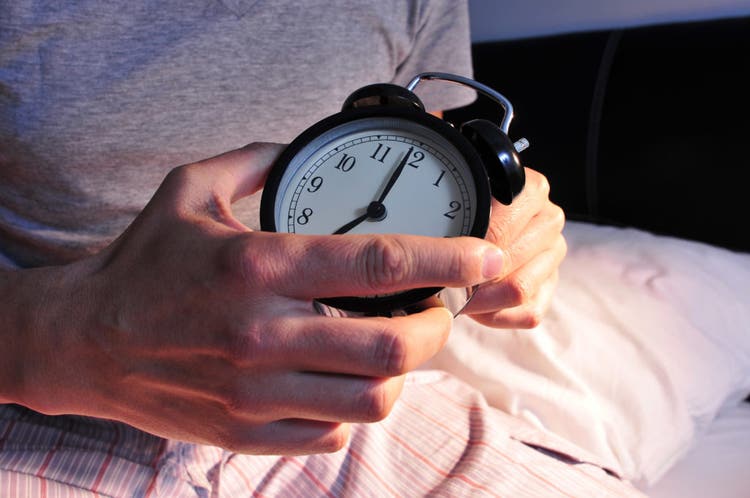
Tip: Use daily heart rate variability (HRV) tracking to track stress resilience and pick the matching exercise.
“HRV is a pattern of your heart rate— if you have a resting heart rate of 60, you might think that’s one beat per second, but that would be a very low HRV,” Gottfried explains. “You actually want variability between the time of each heartbeat. For example, the first gap between heartbeats is 1.00 seconds, and the second is 1.02 seconds, and the next is 1.05 seconds, and so on, in order to indicate good HRV.”
So what does HRV indicate for working out? Gottfried says research proves that when your HRV is high or optimized, your body is showing better stress resilience and health. A low HRV (little variation between beats) actually indicates less resilience and greater stress—so an intense workout isn’t a good idea because it will only add to the stress levels.
“While exercise is vital for a happy body and mind, it is possible to have too much of a good thing, so you want to strive for the right balance to keep your hormones, stress level and metabolism level,” she says. “It’s equally as important to sit less during the day and move more.”
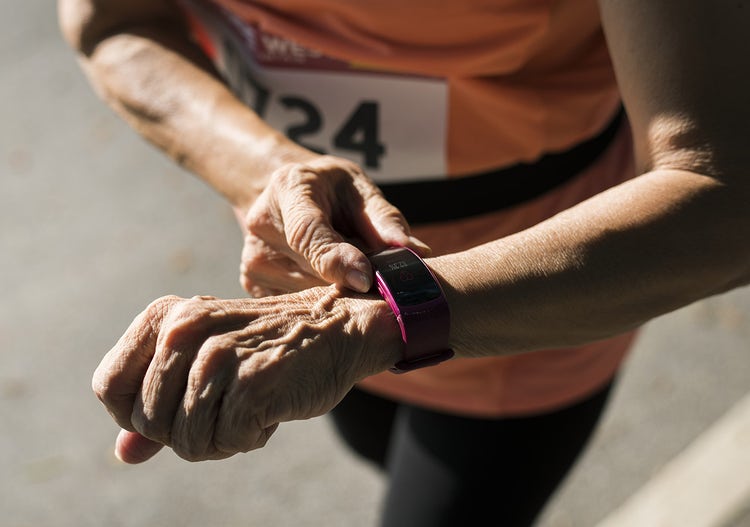
Tip: Consider intermittent fasting.
“It’s a vital part of my hormone-balancing, anti-aging protocols because it helps keep blood sugar, insulin and weight gain stable and reduces inflammation,” Gottfried says. “I recommend it for lengthening the best of middle age (40 to 65) and for weight loss and management. Women benefit, but more slowly than men.”
Gottfried practices a 16/8 protocol five to seven days per week (she finishes eating by 7 p.m., then eats again 16 hours later, around 11 a.m.). When people are first beginning, though, she suggests starting with a 12- to 14-hour window twice per week, not consecutive, and perform only adaptive exercise (yoga, Pilates) on intermittent fast days.

Tip: Avoid sabotaging your hormone health

Tip: Don’t use alcohol to promote sleep.
“One of the most common things I see is people reaching for a glass of wine to relax after a stressful day juggling work and family life. I used to do it myself,” Gottfried says. “Unfortunately, that glass of wine does not relax you, in fact, it does the exact opposite. It raises cortisol levels and reduces the quality of your sleep. So you wake up the next morning feeling tired and foggy and reaching for sugary foods to help you climb out of the fog.
Tip: Practice mindful eating.
Gottfried says it’s important to pay attention to when and how you eat.
“Our brains have evolved over time and learned to scan the environment looking for evidence of danger where you have a greater risk of physical injury. When the brain perceives potential danger of this type, it triggers the immune system to prepare for potential physical injury—which sets off a cascade of inflammation,” Gottfried explains. “Unfortunately, that’s a double-edged sword. Inflammation can be healing and reparative right after an injury. But if it doesn’t turn off, you get chronic inflammation, which can damage DNA, distort proteins, make you age too fast and lead to chronic disease.”

Tip: Mix up your exercise routine.
“Consider introducing high-intensity interval training or burst exercise—short durations done at a high intensity with variability,” Gottfried says. “HIIT is effective at targeting belly fat, regulating insulin levels and improving insulin resistance as well as building muscle.”
An example of HIIT exercise: Walk briskly for two minutes alternating with jogging for two minutes (for a total of 20 minutes), or bicycle fast for bursts of one minute alternating with a slower pace for one minute for a total of 30 minutes.
A certified yoga instructor, Gottfried also recommends yoga for women.
“Not only does it reduce stress and anxiety levels, but it also helps raise adiponectin levels, which adjusts how you burn fat,” she says. “Yoga allows you to relax and improve how your body burns fat at the same time.”
Video credit: Bonnin Studio, Stocksy
Photo credit: Gottfried Institute; HarperOne; Martinan, Adobe Stock; Nito, Adobe Stock; Raw Pixel, Adobe Stock; nehopelon, Adobe Stock; Maksim Shebeko, Adobe Stock; kadmy, Adobe Stock; Trendsetter, Adobe Stock; Monkey Business, Adobe Stock
